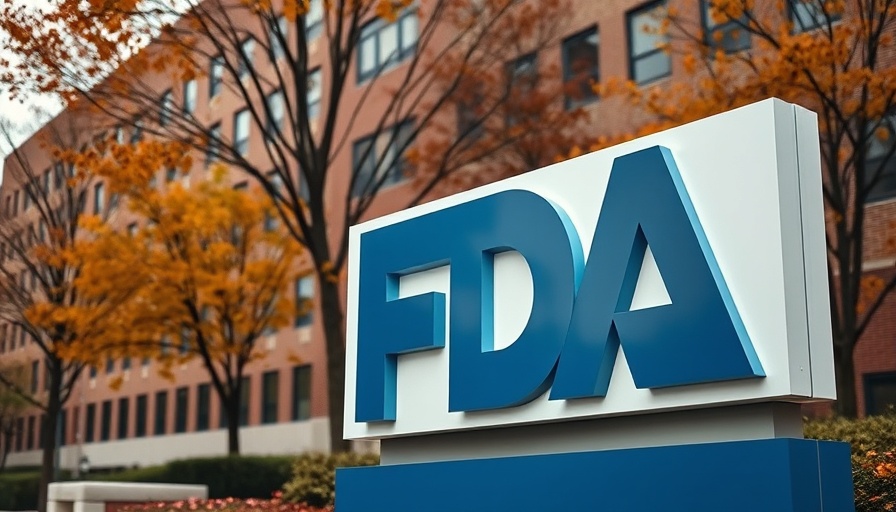
US FDA Takes Bold Step in Influenza Vaccine Recommendations
In a significant move that deviates from established protocol, the U.S. Food and Drug Administration (FDA) has made recommendations regarding the influenza vaccine strains for the 2025-2026 flu season directly to manufacturers. Traditionally, this decision has been reserved for the advisory committee, whose meetings can shape public health responses. However, the agency elected to make these decisions independently this year, a shift that has raised questions about the implications for vaccine development and public health.
Understanding the Implications of FDA's Decision
The FDA has reassured the public that it does not anticipate any effects on the timing or availability of vaccines. The need for urgent vaccine availability comes at a time when the influenza rate in the U.S. has reached alarming levels—reportedly at or near the highest point seen in the last 15 years. As the flu season progresses, the urgency for adjusted vaccines is paramount, and the FDA's recommendations signal proactive measures to adapt to rising cases.
The Health Landscape's Evolution Under Leadership Changes
The backdrop to this announcement is particularly noteworthy, given Robert F. Kennedy Jr.'s confirmation as the Secretary of Health and Human Services in February. Known for his contentious views on vaccines, Kennedy's leadership could shape national health strategies, particularly as the public grapples with vaccine hesitancy. Nevertheless, Kennedy claims he does not label himself as 'anti-vaccine,' aiming to ensure that Americans have access to vaccines.
The Cancellation of the Advisory Committee Meeting: A Cause for Concern?
The advisory committee's meeting—an event that was originally scheduled for the same day as the FDA's announcement—was abruptly canceled, leaving analysts and public health advocates puzzled. This raises discussions about transparency and the role of advisory committees in influencing health interventions. As a science-backed approach typically involves diverse expert opinions, it prompts one to ask if the omission of this step could impact public confidence in the FDA's decisions.
Flu Vaccine Necessity in Today's Health Climate
Public health is increasingly focused on hardships brought by influenza aside from the current pandemic-related challenges—making flu vaccines essential. As COVID-19 strategies evolve, the interplay between ensuring vaccine safety, efficacy, and public uptake remains delicate. Vaccine reluctance is a genuine concern among certain demographic groups, intensifying the need for agencies like the FDA to earn public trust continually through transparency and consistent communication.
Future Predictions: Preparing for a New Flu Season
With the FDA's recommendations poised to set a new trajectory for influenza vaccination, the efficacy of these vaccines will also be scrutinized in the context of new variants and public compliance. Health experts anticipate a thorough analysis based on success rates in clinical trials, determining how these vaccines can effectively mitigate flu infections.
Take Action: Staying Informed and Prepared
As the healthcare community braces for flu season, it is crucial for consumers to remain informed about vaccination options. Engaging with healthcare providers about vaccine availability and efficacy can foster a more proactive approach to personal and community health. Arm yourself with knowledge: understand the flu vaccine's benefits and the current flu landscape to make informed decisions for you and your family.
Stay updated on vaccine developments to navigate the complexities of public health effectively. Knowledge is power, and being informed can pave the way for better health decisions.
 Add Row
Add Row  Add
Add 



Write A Comment